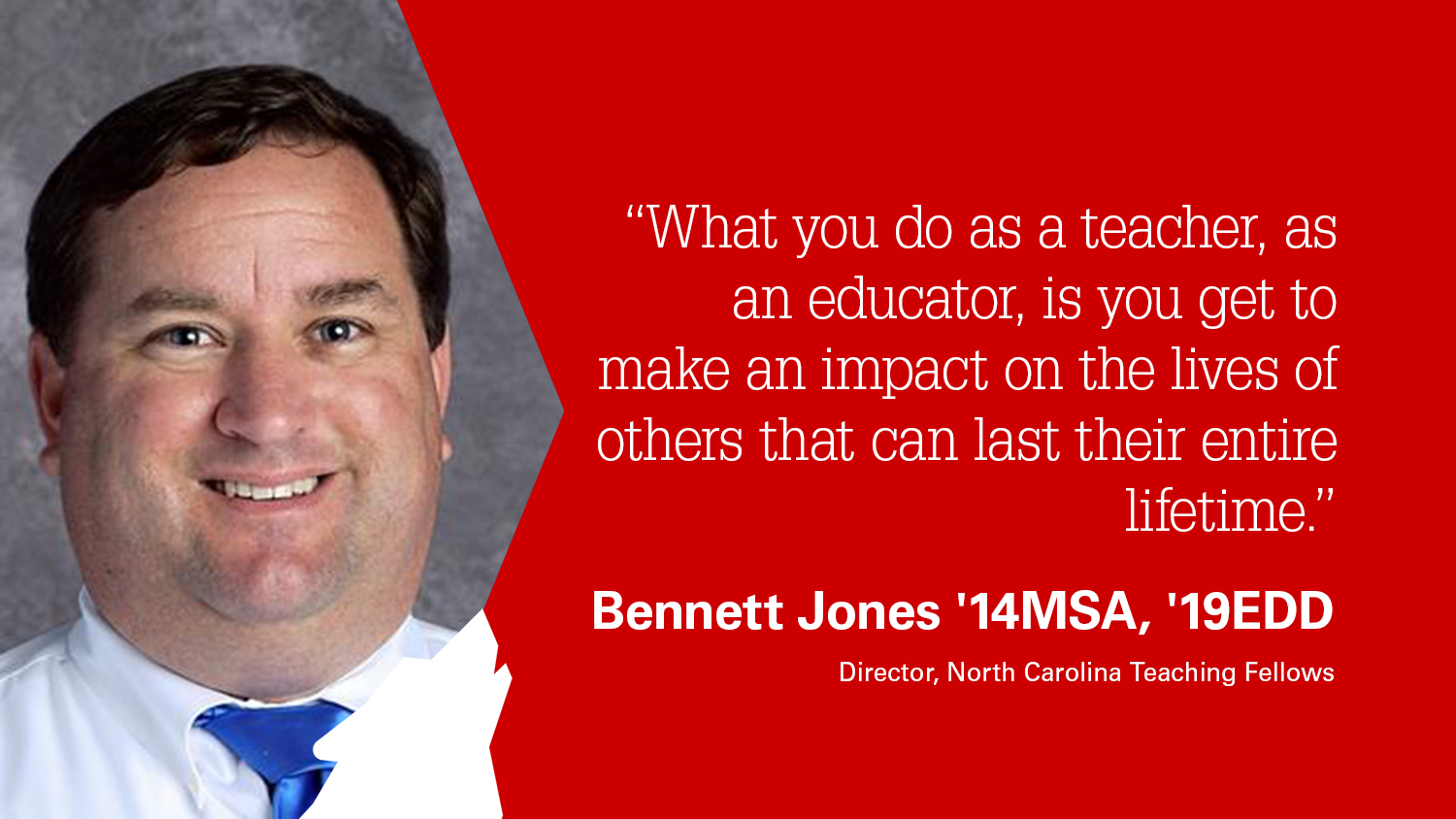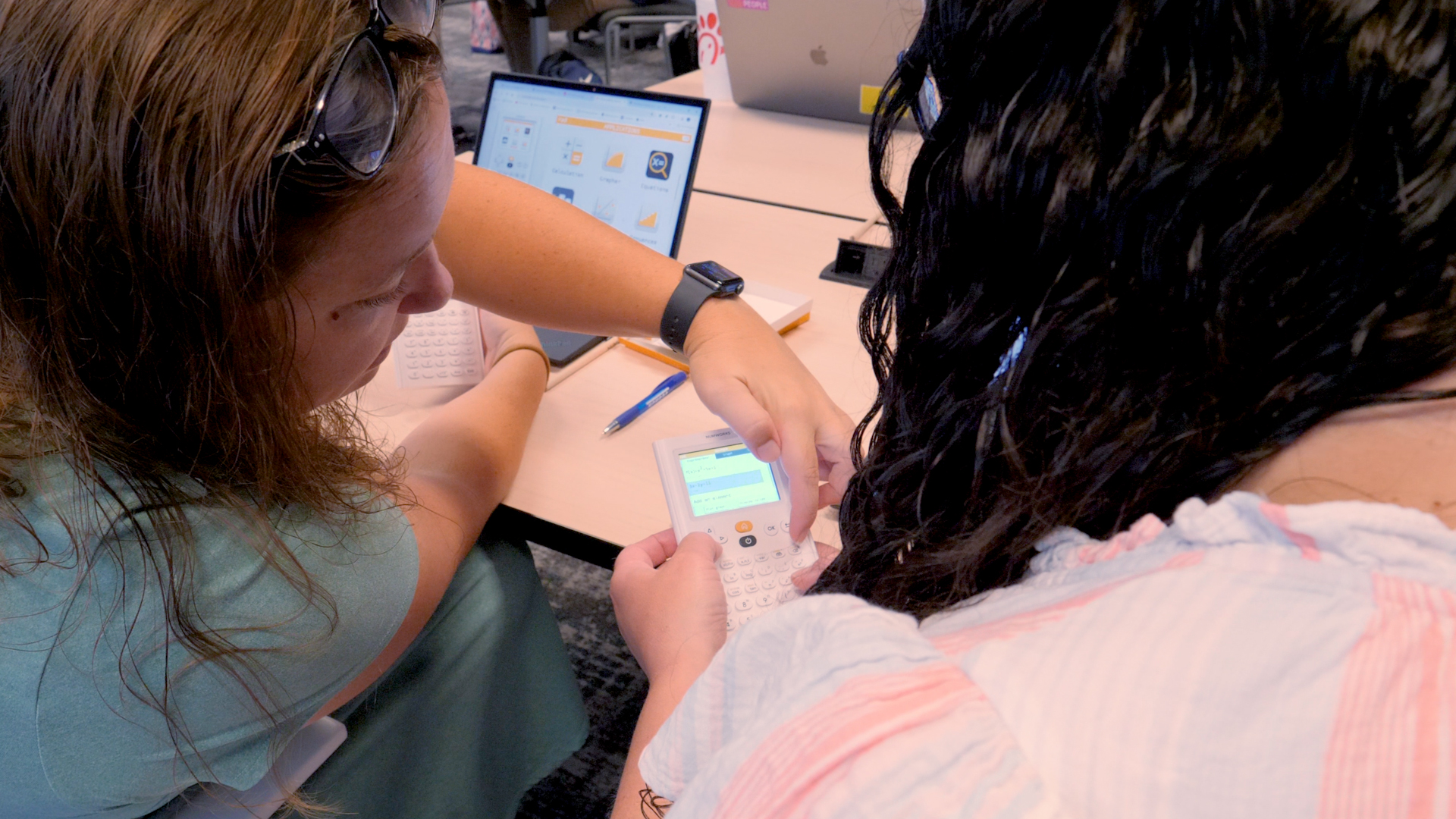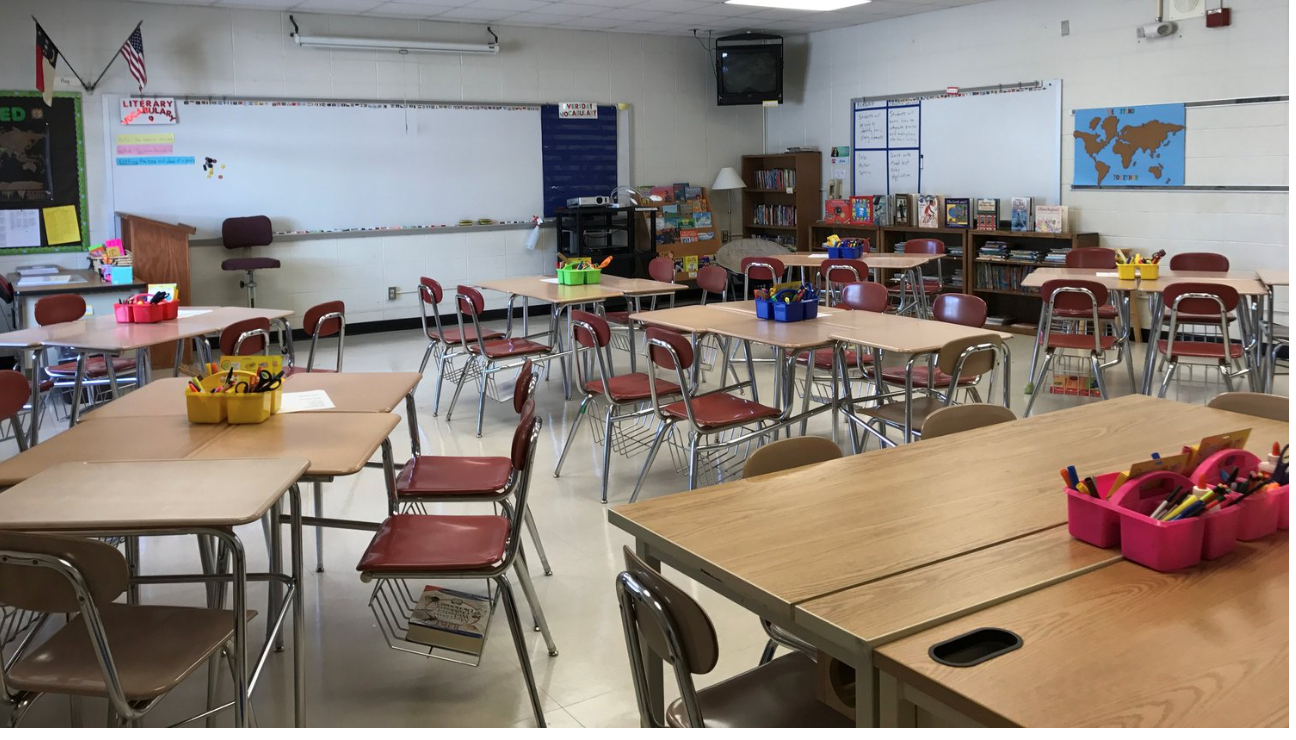#WhyIChoseEducation: ‘What You Do as a Teacher, as an Educator, is You Get to Make an Impact on the Lives of Others That Can Last Their Entire Lifetime,’ Says Bennett Jones ’14MSA, ’19EDD

After more than two decades as an educator in North Carolina public schools, Bennett Jones ’14MSA, ’19EDD is stepping into a new role as the director of the North Carolina Teaching Fellows program.
Jones served most recently as principal of Clayton High School, and he is looking forward to applying his leadership skills to recruiting, preparing and supporting future teachers for North Carolina.
“That’s really what the Teaching Fellows program is,” Bennett said. “It’s a bridge. It’s an opportunity to get them from high school into one of the educator preparation programs that exist at the eight universities that are Teaching Fellows partner institutions and then back into the schools in North Carolina to help teach our next generation of students.”
With the Jan. 9 deadline for applications to the program approaching, Jones said his first task has been to publicize the program far and wide in order to draw a diverse pool of applicants.
“My focus today is how we can recruit students to be interested in educational careers and how, once they make the choice, we can support them in getting into the classroom, so they can make a difference in the lives of kids,” Jones said.
Making a difference has been central, Jones said, to his experiences as an educator.
“It’s such a rewarding career,” Jones said. “There’s so many aspects you can go into in life where you wonder if you made a difference. But I can tell you, as a teacher and educator, you get that feedback pretty quick and you get it throughout your career when you see your students become successful.”
Jones acknowledges the challenges teachers face and hopes that, as the N.C. Teaching Fellows director, he will be able to work with universities, legislators and school systems to be a part of the solution.
“This really is an opportunity to make an impact, not to be cliche, from Murphy to Manteo, all the way across the state, as to how we can help prepare educators and get people into the education profession,” Jones said.
North Carolina needs more teachers, Jones said, teachers who can truly make a positive impact on their students.
“What you do as a teacher, as an educator, is you get to make an impact on the lives of others that can last their entire lifetime,” Jones said.
Why I Chose Education:
The greatest impact on my life came from not only my family members, but it was my teachers and coaches. Those are the ones who inspired me, those are the ones that drove me to be more. I chose education because education chose me. There was a teacher and a coach who was influential in my life and so when they invested in me, it lit a fire in me to invest in others. I think education, in a lot of ways, is a calling to be willing to serve others, to be willing to to try to invest your time and energy to impact others.
I’m a former coach, and to me a coach is nothing more than an extrinsic motivator to light the internal motivation of somebody else. And that’s really what an educator is. It’s somebody that’s trying to light that internal motivation for a student to learn, to be successful and to grow as a person.
Great experiences in my life have come through choosing education, so I’m proud that I chose to be an educator and, specifically, I’m proud I chose to go to NC State and to learn how to become a school leader and how to invest in others. I will say the most robust learning experiences I’ve ever had were in the master’s and doctoral programs because I worked with others who inspired me to be a better educator because they were great educators.
That’s the other part about education — when you surround yourself with great people, they continue to light that internal motivation for you to keep going. That’s what I want to do with others in the Teaching Fellows program.
How Education Has Shaped Me:
In the framework of education, your life is an education — learning from your experiences, being better and trying to have a positive impact on the people that you interact with. That’s been my whole thought process through my journey as an educator; to learn from experiences, the positive and the challenging ones. Each step along the way, whether I was a teacher and a coach, to an assistant principal, to a principal, it’s just the continuation of learning. That’s one of the benefits that you have in this job, you never master this job. You never master the job of education.
The inspiring part for me is that I can go in and do an observation for a teacher who has been teaching for over 20 years, and the first question they would ask is: What can I do to get better? That’s somebody who has mastered their craft and does a tremendous job in educating students, but there’s still that innate desire to be better, to do something better. I think that that’s been ingrained in me throughout my journey in education as a coach. You try to think about how to get better for the next time you play. I’ve tried to apply that to my journey in education. At each stop along the way, what can I do to get better? How can I improve? And so I’ve taken risks and innovations and tried new things. Even if you try something and it doesn’t work, well, now you know that it doesn’t work.
Education is not a one size fits all model. That was the educational standard for decades: You sat in the same place and you did the same thing and you would get the same results. But people recognize that we’re a much more diverse culture now. We have a lot more things that are going on in the world and going on in the lives of students. How can we respond to their individual needs, to personalize their learning experience, so that they can be the very best that they can be? That’s the challenge teachers have right now. And it’s a daunting task to do that, but I think the great thing is that educators innately had that desire to want to be better. It doesn’t matter how good you are. You want to be better next time. That’s been my attitude toward education. I’ve had a lot of successes and a lot of opportunities to grow from, so being able to recognize that you’re going to have that kind of ebb and flow is an important aspect of being a teacher. That’s what I’m trying to impart upon the people I’ve worked with and what I hope to impart upon the future teachers of North Carolina.
What I Enjoyed Most About the College of Education:
I was fortunate enough to go through both programs with a cohort. That was very beneficial. The quality of the professors was top notch. It was a great balance between people that worked in the field, educators in the school setting and those who were more scholarly and academic. It was a great blend of information and shared experiences.
I started the doctoral program on campus and then I transitioned after my first semester to the first [EDD in Educational Leadership cohort]. Being able to work with people across the eastern part of the state, to hear their experiences, to share ideas and to learn from them, that was fantastic.
I will say the College of Education first and foremost provided the absolute best mentors and professors for me. They continued to motivate us to push us to challenge our thinking, but at the same time had grace and understanding. The faculty and the staff at NC State was first class.
What Others Should Know About the College of Education:
I tell everyone that the experience you’re going to get from NC State is the most robust learning experience that you can imagine.
What I got from NC State was the relationships with people that you can count on, that you can call on even after you graduate. It’s a family atmosphere — we just had a reunion not too long ago. The quality of the faculty and staff is second to none.
Specifically, I’m going to thank Distinguished Professor Lance Fusarelli and Professor Bonnie Fusarelli, who were critical in my educational experience all the way through, as was [former State Superintendent of Public Instruction and Professor of the Practice] Mike Ward ’77BS, ’81MS, ’93EDD. But every professor I had at NC State, they care about the students. I think it shows in their work. You’re not just a student; you’re part of the family in the College of Education. They invest in each and every student to make them feel welcome and to feel really like a part of the process. I probably would have never finished if I had gone somewhere else. They just continued to drive and motivate me, and it really pushed me to limits that I didn’t know that I could go to. I would say that, at NC State, you become part of the family and that’s a special and unique experience.
The Last Thing I Experienced That Inspired Me:
The first is my kids. I’m very proud of both of my kids. My daughter is a freshman at UNC- Chapel Hill and my son is a freshman in high school. They inspire me each and every day, just because of their great determination and drive. Along with my wife, they provide inspiration these days.
The second is the last week that I was principal at Clayton High School. It’s inspiring to me that there’s a lot of great young people in this world. You might hear stories about how things aren’t like they used to be, but we have a lot of great students and a lot of great teenagers in our society. I got a chance to interact with a whole bunch of them before I left and to see how inspired they are to make a difference and step into leadership roles, whether I was meeting with my group of student leaders or just interacting with students in the hallway. There’s a lot of positivity out there. There are a lot of teenagers who are doing great things and a lot of students that are going to be successful leaders in our society. The more that we can tell their story, the more that we can highlight the positive things that they’re doing, to me, it is inspiring. That’s what I’m looking forward to with the Teaching Fellows, that when we award these scholarships we’re going to be able to tell a positive story.
- Categories:


